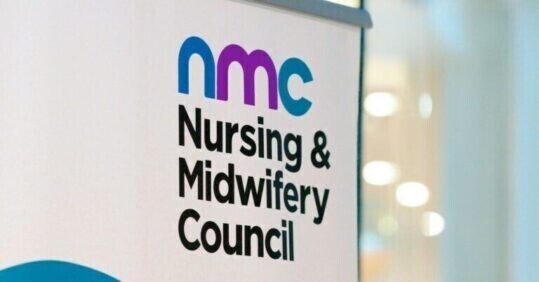Only 25% of practice nurses have heard from employer about 2025/26 pay rise

Only a quarter of general practice nursing staff have been told by their employer how much they will be receiving as a pay rise for 2025/26, an exclusive Nursing in Practice survey has revealed.
Of almost 500 respondents across the UK, more than half (54.5%) said they had not heard anything at all from their employer about a salary uplift for this financial year.
The survey – carried out by Nursing in Practice in July – has added weight to ongoing concerns about pay inequities for general practice nurses (GPNs).
Funding to support a 4% pay rise for employed GPNs and other practice nursing staff has been uplifted and both NHS England and the government have said GP practices should pass on the rise to their staff for 2025/26.
But as in previous years, concerns have been raised around a lack of standardisation or a national approach to GPN pay, which means a salary rise is not guaranteed.
In response to concerns, the government suggested to Nursing in Practice in July that a new substantive GP contract – due before the end of this Parliament – ‘could address’ practice nurse terms and conditions.
As part of our survey, general practice nursing staff were asked what the latest state of play was when it came to a pay rise for 2025/26 – to which 490 people responded.
Results showed:
Related Article: FtP screening caseload at lowest level in five years, says NMC
- Only 25% had been told by their employer how much they will be receiving as a pay rise for 2025/26
- Some 54.5% had not heard anything from their employer about a salary rise for 2025/26
Our latest survey suggests many GPNs are still without a pay rise for 2024/25 and are not hopeful for 2025/26.
Last year, employed GPNs were meant to be given an uplift of 6% in England, as recommended by the government.
But Nursing in Practice’s General practice nurse pay: A salary survey of the profession 2025 report found that half of general practice nursing staff had not received a pay rise for 2024/25 as of autumn 2024. Of those who had received an uplift, only around one in six (16%) were awarded the 6% recommended by the government in England.
In our latest survey, 10% of respondents said they did not receive a pay rise at all for 2024/25 and do not expect one for 2025/26.
Meanwhile, a further 3.5% said they also did not receive an uplift for 2024/25 but that they will be asking for one for 2025/26.
The Royal College of Nursing (RCN) has been among those calling for ringfenced funding for GPN pay rises, and has also previously encouraged those among the profession to speak to employers about their pay.
Responding to our survey, executive director of RCN England, Patricia Marquis, said: ‘When more than half of respondents say they have not heard anything from their employer about their pay rise for this year, it is a worrying sign of the annual battle general practice nurses have to get the pay rise they are owed.’
She added: ‘It is not the first time this has happened, but it must come to an end.
‘The government has said that increased funding for general practice is also designed to cover staff pay, but we need real commitment and action to ensure this reaches staff.
‘We need to see ringfenced funding for pay to ensure staff receive the pay increase they are due, and we must see commitment and action from government to ensure there is not a repeat of last year where many staff were left without promised pay rises.’
One GPN responding to the survey said: ‘We never get any uplifts passed down.’
Another added that they had received an email from their employer saying that no decisions on a pay rise had been made, but that it ‘went into detail about risking costs for GP surgeries, so I am not hopeful’.
Related Article: Government and TikTok campaign to target overseas cosmetic surgery
Some GPNs described having to ‘beg’ for a pay rise and still only being given a ‘very, very small rise’.
Others mentioned the impact of National Insurance Contribution and Minimum Wage rises, announced in the autumn 2024 budget.
‘Me and the other practice nurse have asked for a pay rise as we also didn’t get one last year and have been told they can’t afford it after minimum pay and National Insurance being increased,’ one GPN said.
A nurse practitioner added: ‘We have been told the practice has no money to give us a pay rise.’
One advanced nurse practitioner (ANP) said nurses in general practice ‘are at the mercy of the GP partners and their personal financial agendas’.
‘NHS secondary care settings are better at following government guidance and ensuring pay increases are actioned,’ they added.
The disparities between pay among NHS nurses and those in general practice were also highlighted in our Salary Survey report – warning that GPNs are ‘lagging behind hospital nurses’ earnings’.
For 2025/26, NHS nurses on Agenda for Change are to be awarded a 3.6% uplift, backdated to April. However, NHS nurses have been rejecting the deal in recent weeks, with the threat of strike action on the table once again.
Related Article: Most people do not consider type 2 diabetes risk, research shows
General practice nursing staff employed through the Additional Roles Reimbursement Scheme (ARRS) should also be given a 3.6% pay uplift for 2025/26 and primary care networks (PCNs) have this year been given funding to do so.
This survey was open between 2 July and 21 July 2025, collating responses using the SurveyMonkey tool. The survey was advertised to our readers via our website and email newsletter, with a prize draw for a £1,000 voucher as an incentive to complete the survey, alongside our sister publications. This survey question on pay was completed by 490 general practice nursing staff respondents. The survey was unweighted, and we do not claim this to be scientific – only a snapshot of the general practice nursing population.

See how our symptom tool can help you make better sense of patient presentations
Click here to search a symptom





![Menopause: identification and management [NG23]](https://s3-eu-west-2.amazonaws.com/images.nursinginpractice.com/wp-media-folder-nursing-in-practice/wp-content/uploads/2025/03/PULSE-NIP-UPLOAD-BAYER-NICE-MENOPAUSE-A5-HANDBOOK.jpg)
